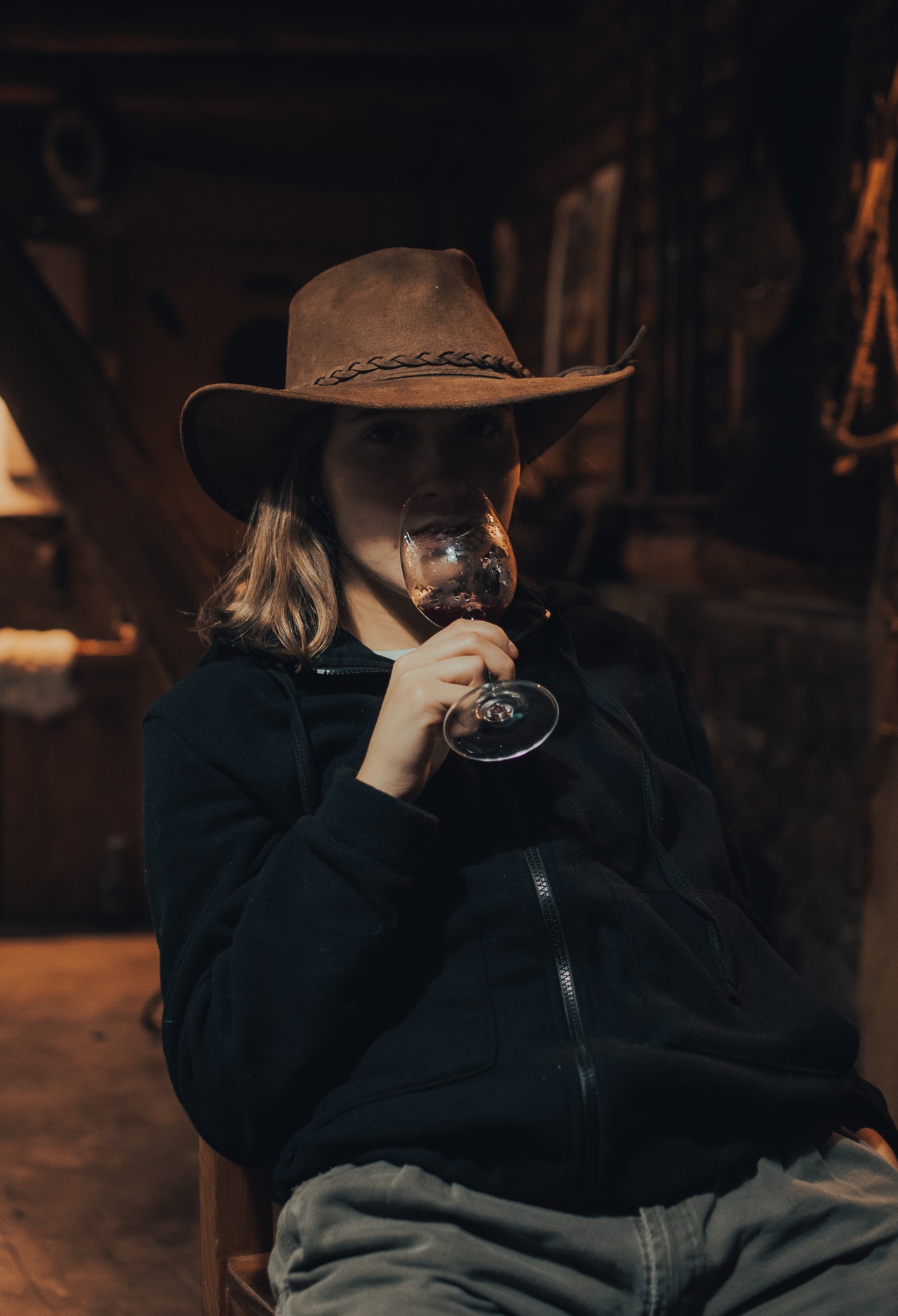I am mostly a teetotaler, by choice.
When I say “mostly,” it is because it is a rare occasion that I indulge, such as the dinner menu tasting while helping to choose the food and beverages at my son and daughter-in-law’s wedding in 2017; I had a sip of each of the two wines they were considering.
I requested that there be Martinelli’s Sparkling Cider for the toast. Beyond that, I can’t recall when I last indulged in fermented beverages other than kombucha. True confession: in my college days, I overindulged. Weekends started on Thursday nights. I liked the intoxicating buzz I felt. I liked feeling uninhibited. I liked feeling like “one of the cool kids.” I didn’t black out. I didn’t lose control of my faculties. I was never (blessedly) in a situation in which I was in danger. I can recall only one time in which alcohol took over and left me clutching the porcelain at 5 a.m. with the room spinning around me. I wish I could say that it was the last time I hoisted a few. It took many years and a conscious decision later that I wanted to be in charge of my emotions and actions and know what I was doing and with whom, such that alcohol played only a minimal role in my life.
This morning, I saw a Facebook post by a woman who held up a sign that read, “Alcohol is the only drug we have to explain not using.” She went on to say, “I went to a playdate the other day at someone’s house. Almost the moment I stepped through the front door, the mom giggled, ‘Mimosa time!’ and my body froze up. I wasn’t prepared for this.”
Could I ever relate to that? No one should have to justify not drinking. I have friends in recovery, and I am an addictions counselor. I grew up in a house in which there was a liquor cabinet that I asked my parents about. I pondered why when they didn’t drink they had it. Their response was that it was for company since that was the expectation. When my mom died and I emptied the liquor cabinet, I laughed when I saw that what remained had lived there for so long that it had turned to sludge. In my childhood, I noticed that if there was a six pack of beer in the fridge after July 4th cookouts, there was still a six pack there the next 4th. My parents used to say they were “cheap dates.”
Whenever I have had gatherings at my house, I didn’t provide alcohol. On rare occasions, people would bring bottles of wine to share, and if any bottles were left, people took them home. We live in a culture in which alcohol consumption is expected at certain events. It doesn’t have to be. I recall one of my clients in an outpatient rehab who was determined to get sober said it was particularly challenging because alcohol was ever present. Family gatherings, cookouts, Phillies and Eagles games, when helping friends move, camping and fishing trips, all included beer. He needed to rewire his thoughts about alcohol consumption and the role his drug of choice played in his social interactions. It was an integral part of his family culture.
He was reluctant to discuss his newfound recovery with them since they wouldn’t understand. They likely would have asked, “So, you think you’re better than the rest of us now?” Truth is, he didn’t feel superior to anyone. He just wanted a new life that didn’t involve substances. We had to work on the idea that he needed to “avoid people, places, and things” that could contribute to his desire to use. It meant finding other ways to have fun. Gradually, his lifestyle change became his norm.
Another hat I wear is that of an interfaith minister. One couple I married had met in the rooms of AA and became friends. Nine years passed, and they decided to deepen the friendship into a romance. They wrote their own vows, and what they declared was that their relationship was the gift that came with sobriety. They added that if the relationship threatened their sobriety, they would sooner leave the relationship since if they returned to drinking, the relationship would wither and die. Such dedication. My hope is that they maintained their vows and enjoy life as it is now. Clearly, they wanted to be married to each other and not the bottle.
I have heard from clients that they would have to fend off questions about why they weren’t drinking, so they would say things like, “I’m on a medication, so I can’t drink while I am taking it.” or “I’m the DD (designated driver), so I can’t drink.” Some didn’t want to admit that they were an alcoholic. Why should anyone feel they have to justify not drinking? Saying, “No thank you,” should be sufficient. My friends and family know not to even offer. I think of it as a form of self-love and boundary setting.
When I reposted that woman’s photo and statement, here were some responses that followed:
“I don’t drink either, by choice (my mom was an alcoholic all my life till she passed away from it 6.5 years ago). Her sister was one too, but her sister got sober.”
“It really is glorified and expected and really not healthy aside from the alcoholism.”
“I have never been drunk in my life, and I played music professionally for 20 years! The judgement and suspicions when refusing to drink were truly amazing. Being true to yourself should not demand courage, but it does. Fortunately, the reward of living a genuine life does confer the strength needed to do so.”
“It will pass. One day you’ll suddenly become aware that it no longer bothers you. Hugs.”
“I totally get it. I stopped drinking at least 25 years ago. It took 10 years for my brother in law to say ‘can I get you some water?’ instead of trying to entice me to drink. Alcohol gives me an instant hangover instead of a buzz. Better for me to do without. Who cares what you drink?”
“Agree…..I have no problem saying…thanks, but I don’t drink…..why has it become such an issue?”
“After my miscarriage, at family events I’d always accept a drink because if I didn’t, multiple people would ask if I was pregnant and I’d end up crying. It was easier to just carry a beer.”
“These situations are crazy. I often choose not to drink, and certainly think that would be the case at a kid’s playdate. Seems completely irresponsible. And unfair to have to self-disclose each time you decline.”
“Early on in recovery I decided I would own it out loud. (I’m grateful I feel I can. I understand that is not true for everyone.) My feeling on the matter is: If I’m around people for whom my not drinking is a problem – especially because of the reason I am not drinking – then *they* are the problem and I don’t hang out with them anymore. That has been surprisingly few people, and I am grateful for that.”
“Alcohol makes me sick. It triggers my migraines. I just say this when people offer me a drink. And honestly, my friends never give me a hard time about it. Of course, I don’t socialize a whole lot. And when I do it’s usually hiking or other outdoor activities that don’t warrant an alcoholic beverage. But, this subject is making me think. Perhaps because I’ve always been an outlier and haven’t felt a deep need to abide by societal norms, I don’t feel this pressure like many do. Not sure. But thanks for this discussion, Edie. You’ve given me something to ponder. “
“This is interesting because most of the comments are made my women & I have never been a drinker. Thankfully, I never had the draw, the desire, or the pull to drink. It’s never done anything for me. When I was in the service I tasted my first hard alcohol & I wasn’t impressed. Again, it did nothing for me & it tasted awful to boot. I thought, if I had to sweeten this awful tasting beverage with a Coke or orange juice then what’s the point? Wine always gives me a headache & later in life I enjoyed the taste of an occasional micro-brew beer because of its varied flavors (e.g., wheat berry, fruits, etc.). However, it too was short lived & I no longer enjoyed drinking it simply because it made me feel heavy & unhealthy. In conclusion, I’ve hardly had a beer in the last twenty years. Nor has my wife but we both find it interesting that we’re often judged & ghosted because we don’t drink. Drinkers often don’t like to socialize with nondrinkers because they feel the nondrinkers will be judging them. And as a man, just about every man I know & or worked with drinks & when I don’t I get hit with a barrage of questions or ribbing. So, I socialize a lot less often as a result.”
“I have never felt the need to explain not drinking…ever….not even in high school or college. My friends know I don’t and never pass judgment. I image I may been excluded from some activities over the years, but I am ok with that.”
I don’t feel like I’m missing out on the fun by not drinking. I toast (with my sparkling cider) anyone who chooses alcohol-free celebration for whatever reason. Here’s to your health!
~
Please consider Boosting our authors’ articles in their first week to help them win Elephant’s Ecosystem so they can get paid and write more.












Read 19 comments and reply